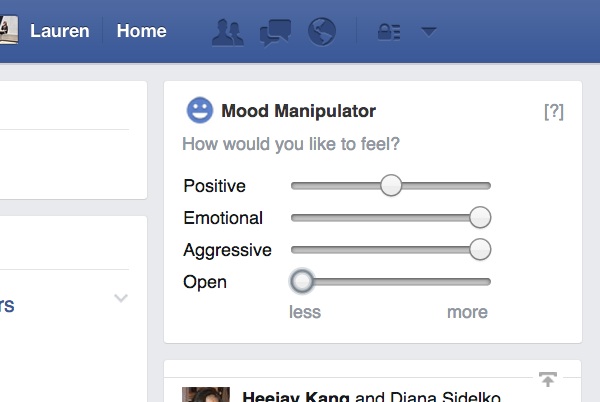Mood Manipulator
A browser extension that let's you choose your Facebook mood and filters content accordingly


The recent emotion contagion experiment conducted by Facebook’s Data Science Team set out to research how users’ emotional states were affected by content on their news feeds. In order to conduct this research, the team reportedly manipulated how users felt by using word omission algorithms - something the Facebook community, upon hearing this news, has not reacted positively to, .
Responding in her own way, artist and programmer Lauren McCarthy has developed a Google Chrome Extension that lets users set how they’re feeling on Facebook, with content on the social network adapting to their preferences. Simply put, the FB Mood Manipulator allows users to choose how they feel and filters content accordingly.
After installing the browser extension, a white box will appear in the top-right corner of a user’s feed. The box features four sliders, labeled Positive, Emotional, Aggressive, and Open, which users can play with until they’ve found a combination that best represents their mood. While developed as a backlash against Zuckerberg’s experiments, McCarthy contextualises against a wider conversation around tech emotion, writing, “We are all freaked about about the ethics of the Facebook study. And then what? What implications does this finding have for what we might do with our technologies? What would you do with an interface to your emotions?”
A word of warning, sliding the Emotional scale all the way to the right results in an increase of posts about weddings and babies, so stay away from that one.



Discussion